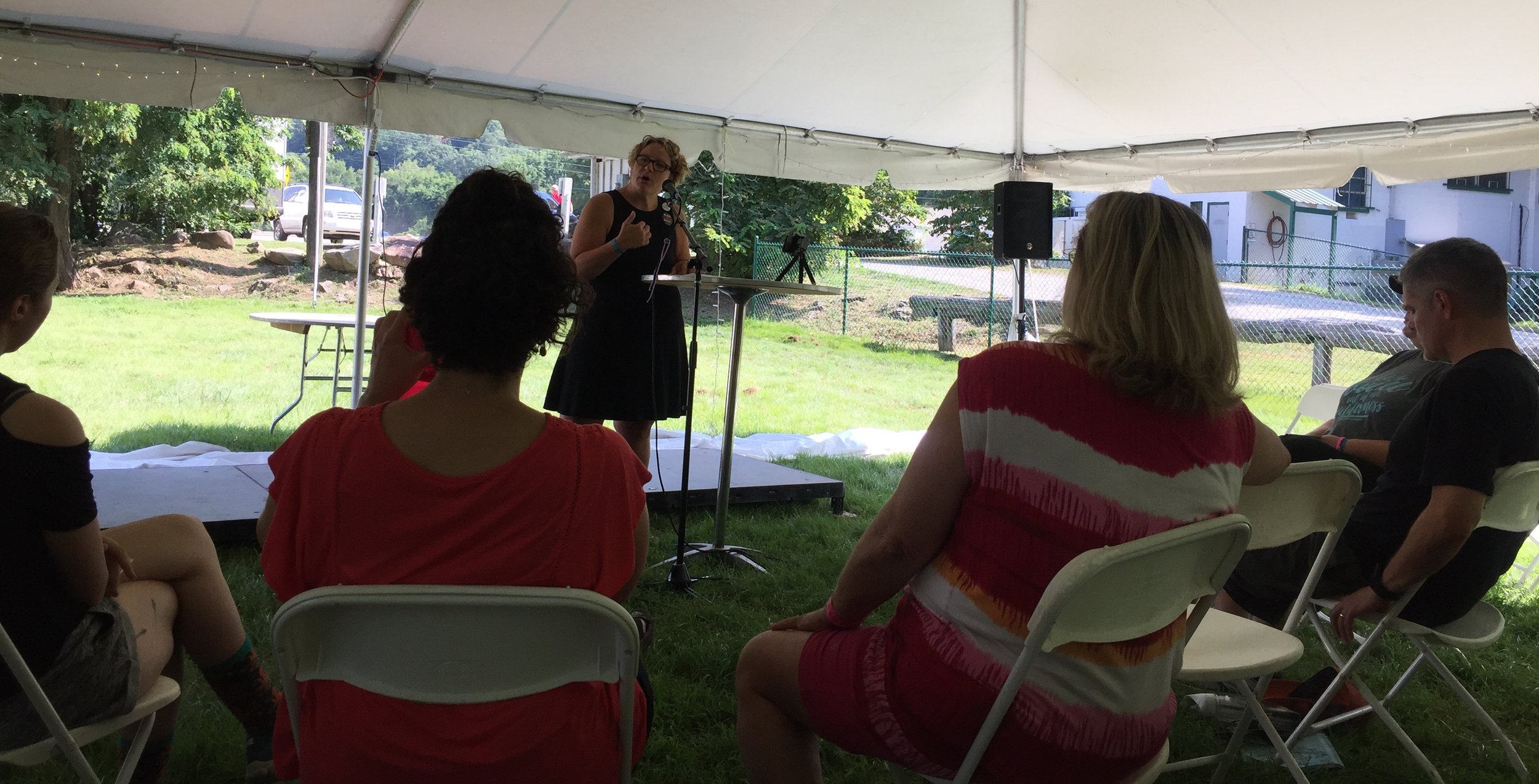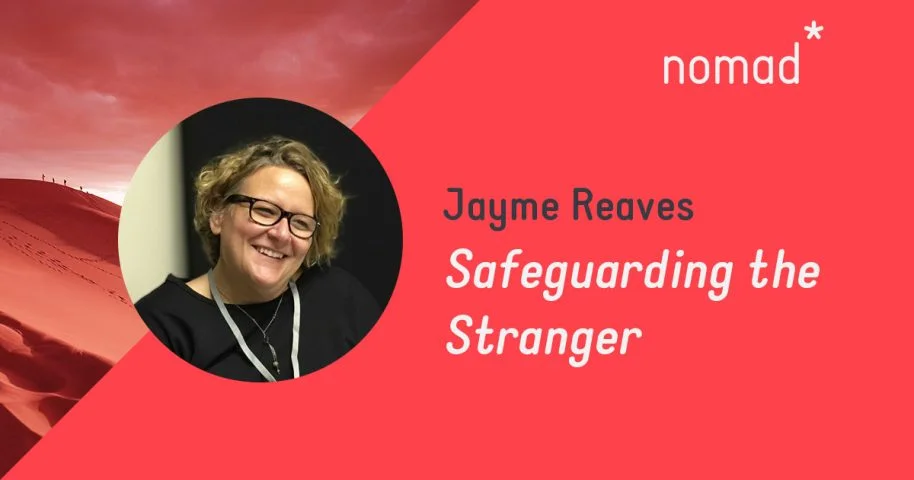



About Me
About Me
How do we reconcile what we often hear about God with our own experiences and the experiences of those both within and outside our own communities? As a public theologian, I believe our actions in the world are shaped by our true thoughts and beliefs. For example, we often say God is love, but do we really believe it? How does that love exhibit itself in how we relate to the stranger and our neighbor? Are our lives defined by that same love, or is that love tempered by concerns regarding obedience, purity, and who is in or out?
Public Theology is where belief about God intersects with politics, gender, race, sexuality, environment, and culture issues. As such, this particular method of "doing theology" becomes a conversation about how we apply theology to our lives and how that application impacts the way we live in the world.
When we believe that God is exclusive and for a "chosen few," solidarity with others who are perceived to be outside the boundaries is often discouraged, rebuked or even punished. When we believe that God calls us to welcome, identify with, and provide hospitable space and safety to the stranger, our actions of providing sanctuary create stronger, healthier, vibrant, cooperative communities. In particular, I'm interested in legacies created by social injustice, violence, peace, reconciliation and moral courage, and I'm drawn to cause and effect: "if we believe x, what effect will it have on us, our community, and our world?"
Born and raised in the Deep South of the U.S., I learned early on about negotiating boundaries related to race, gender, identity, politics and faith. Over the last 20 years, I have worked as a consultant, researcher, facilitator, and lecturer in the United States, United Kingdom, Former Yugoslavia, and Northern Ireland. In 2004, I received my M.Div. from Baptist Theological Seminary at Richmond (Virginia, US), in 2007 an M.Phil. in Conflict Transformation and Reconciliation, and in 2012 I received my Ph.D. in Theology from Trinity College, University of Dublin.
My latest publication, Safeguarding the Stranger: An Abrahamic Theology and Ethic of Protective Hospitality is available from Wipf & Stock or from your favorite book retailer.
I live in Dorset, England.

My Work
My Work
PUBLICATIONS & PRESENTATIONS
SAFEGUARDING THE STRANGER: AN Abrahamic THEOLOGY AND ETHIC OF PROTECTIVE HOSPITALITY
Wipf & Stock (Pickwick), 2016.
Sarah as Victim & Perpetrator: Whiteness, Power, and Memory in the Matriarchal Narrative
Review & Expositor: A Baptist Journal, November 2018.
Cities of Refuge: A Bible Study Exploring Sanctuary & Restorative Culture in the Hebrew Bible
Churches Together in Britain & Ireland's Churches' Refugee Network Sanctuary Conference, February 2018.
The Role of Protective Hospitality in Building Reconciled Communities
In Thinking Peace: What is Reconciliation? Issue 7. The Corrymeela Community: Belfast, 2013.
Beyond Coffee and Cake Hospitality: Joshua 2:1-22;6:22-25
A chapter in Letting the Other Speak: Proclaiming the Stories of Biblical Women, edited by Tracy Kemp Hartman. Lanham, MD: Lexington, 2012.
Being the Other: CONFERENCE RESPONSE TO 2011 THEOLOGICAL STUDENTS' CONFERENCE
Published in peer-reviewed Experiential Learning Paper, no. 6. Belfast: Irish Peace Centres, 2011. pg. 78-81.
The Holy Rite of Disagreement. Studying Faith, Practicing Peace
Published in peer-reviewed Experiential Learning Paper, no. 4. Belfast: Irish Peace Centres, 2010. pg. 77-83.
Room at the Table: The Role of Hospitality in Inter-Religious Life
Published in The Place for Others in Our Faith and Life: Foundations for Inter-Religious Peace Education. Abraham Association for Inter-Religious Peace Work: Sarajevo, 2004.
We Are Made of Stories: Reading COntemporary Fiction as Sacred Text
Draft research paper presented to Society for the Study of Theology Conference, Nottingham (UK), April 2018.
#MeToo: Why Naming Jesus as a Victim of Sexual Abuse Matters
Co-authored & presented with David Tombs at University of Sheffield's Institute for Interdisciplinary Biblical Studies and at Queen's Theological Foundation, Birmingham (UK), January 2018.
PROTECTIVE HOSPITALITY
In The Porch Magazine, May 2017.
Decade of Anniversaries Toolkit: Understanding Our Past, Shaping Our Future
Co-authored with Helen McLaughlin for Healing Through Remembering and the Northern Ireland Community Relations Council: Belfast, 2013.
The Impossibility of Being ‘All Things to All People’: The Realities of Trying to be a Scholar, Educator, and Activist
Conference Response Paper for the 2011 Interface Youth Theologians Conference in Maynooth, Ireland.
Clergy and Their Response to Trauma: A Literature Review
Co-authored with Vincent, F.; Leavy, G.; and Brown, C. Northern Ireland Association for Mental Health. 2011. Internal publication.
Redemption, Resistance and Liberation: A Christian Response to Modern Slavery
Co-authored and presented with David Tombs for the European Slave Trade Conference in Dublin, Ireland, July 2007.
RECORDINGS
This is a conversation with Tim & Dave, the guys behind Nomad Podcast which helps listeners think about life in the post-Christendom wilderness. This episode focuses on my learning and research around protective hospitality and was released on 9 February 2018.
The #MeToo movement raises important questions for Christian faith and theology. David Tombs and I explore the biblical and theological reasons for naming Jesus as a victim of sexual abuse drawing David's 1999 research presenting crucifixion as a form of state terror and sexual abuse. Paper was given at University of Sheffield and hosted by the Sheffield Institute for Interdisciplinary Biblical Studies on 16 January 2018.
Wisdom Understands Tension
27 May 2014
BBC Radio Ulster: Thought for the Day
Nothing is Guaranteed
3 June 2014
BBC Radio Ulster: Thought for the Day
The End of Shame
10 June 2014
BBC Radio Ulster: Thought for the Day
Choose Mercy
17 June 2014
BBC Radio Ulster: Thought for the Day
watercolor images above are kindly provided by Suzanne Stovall Vinson

My Values
My Values
I seek to be in extended conversations, to engage with people who have deeper questions and ideas about spirituality, theology, ethics, and what it means to be human. Here’s what I think is important and what makes my work different:
Gender-inclusive language for god
To me, God is female, God is male, God is neither. As a feminist and activist for LGBTQI+ inclusivity, it is important for me to make space for the feminine, as well as masculine, characteristics of God without assigning a gender identity. God-talk is difficult enough as it is without muddying it up with gendered pronouns and social constructs.
Irreverence
G.K. Chesterton wrote in his collection of essays, All Things Considered (1908), that “it is the test of a good religion whether you can joke about it.” Humor and irreverence are spiritual values for me, and being unable to find the humor in scripture, or to laugh – whether it’s a belly laugh or satire – at religion, church, and the ways we as humans try to relate to God and each other is a good test as to what we’ve perhaps made into idols.
honesty & independence
I have no formal denominational ties, and, therefore, I answer to no one and can speak and write without having to tow a "party line." As such, I have no agenda other than seeing the world become a better place for everyone. Also, you may occasionally see colorful language used. I think the occasional use of expletives can be holy; so while I certainly self-moderate, I do not self-censor.
doubt
I don’t seek to know all the answers, but I think asking questions is still important. I was raised in a fundamentalist tradition that valued certainty. Over the years, I have come to believe certainty is often an illusion and I have found I’m a kinder, gentler person when I embrace the not-knowing. I think curiosity (rather than cleanliness) is next to godliness, and doubt is essential for healthy curiosity.




